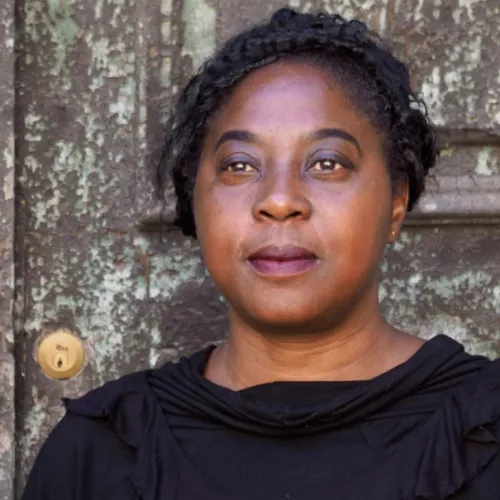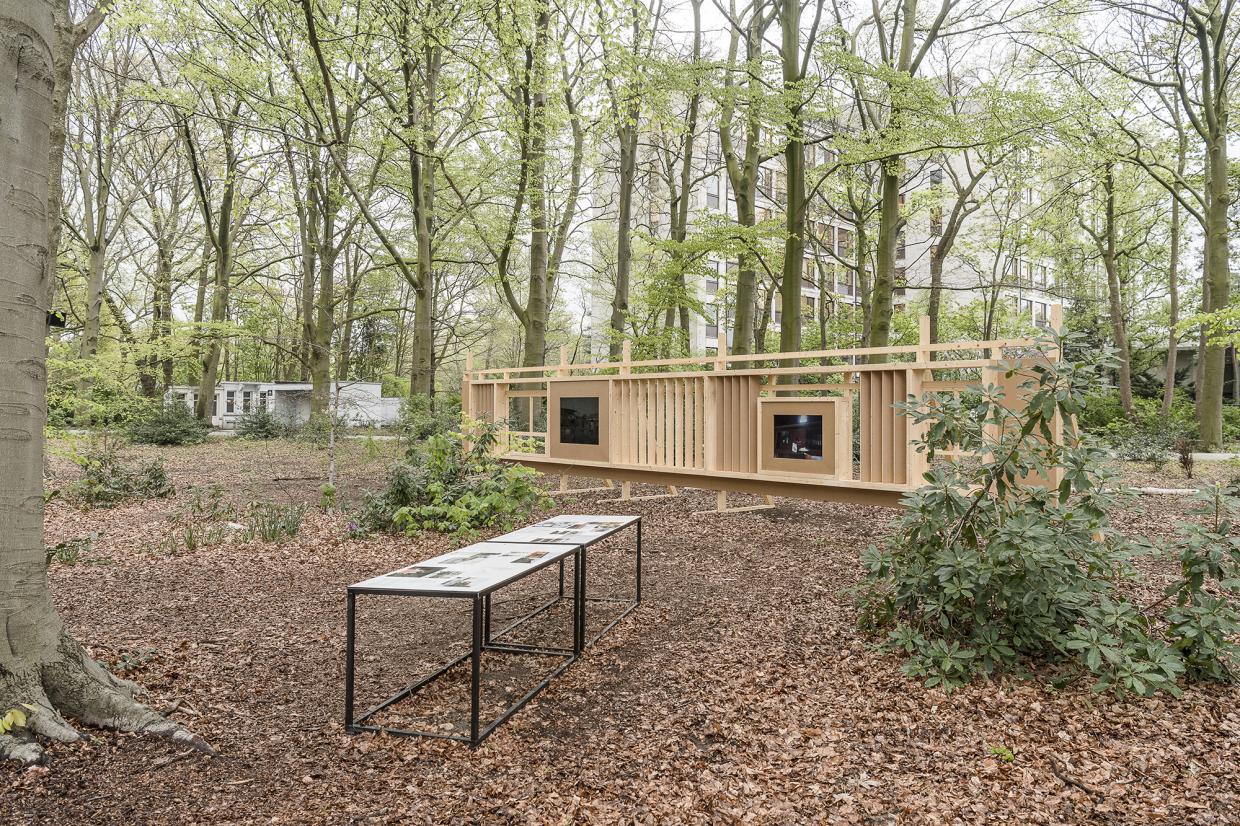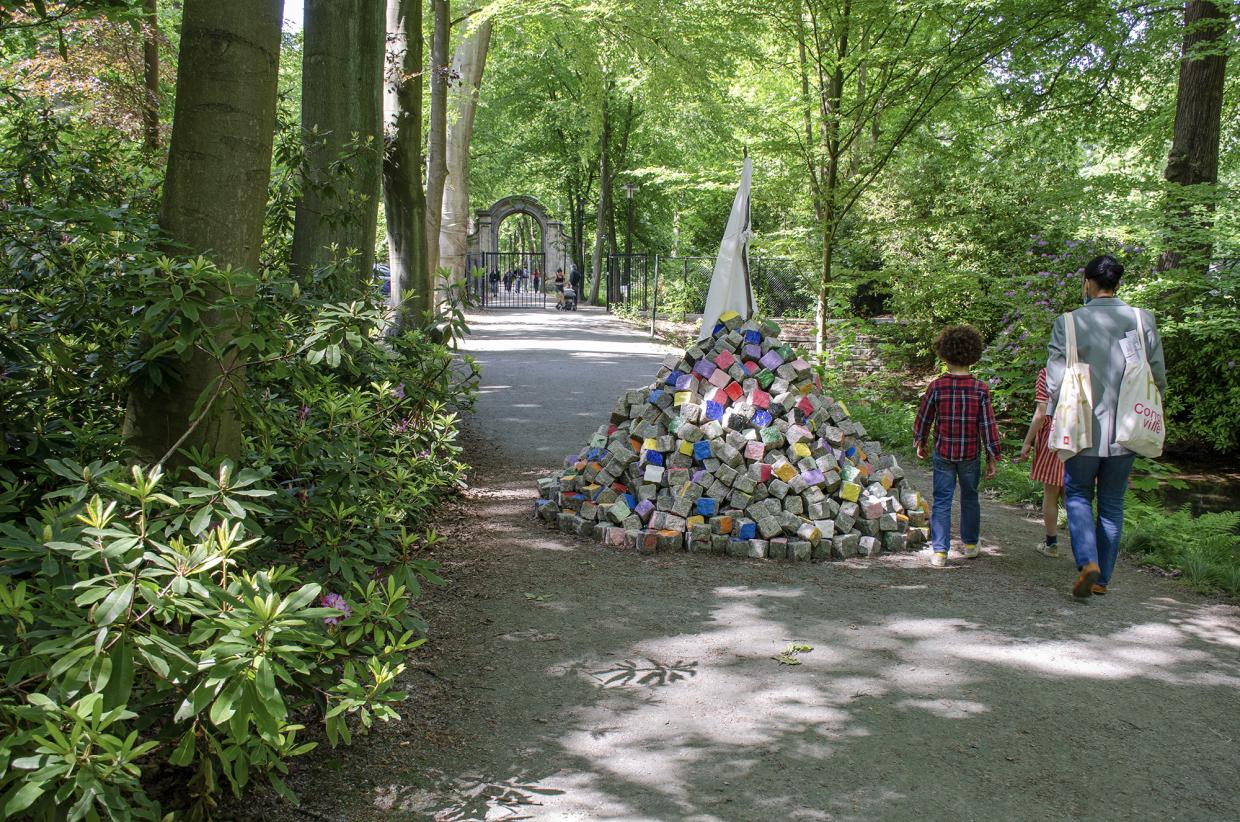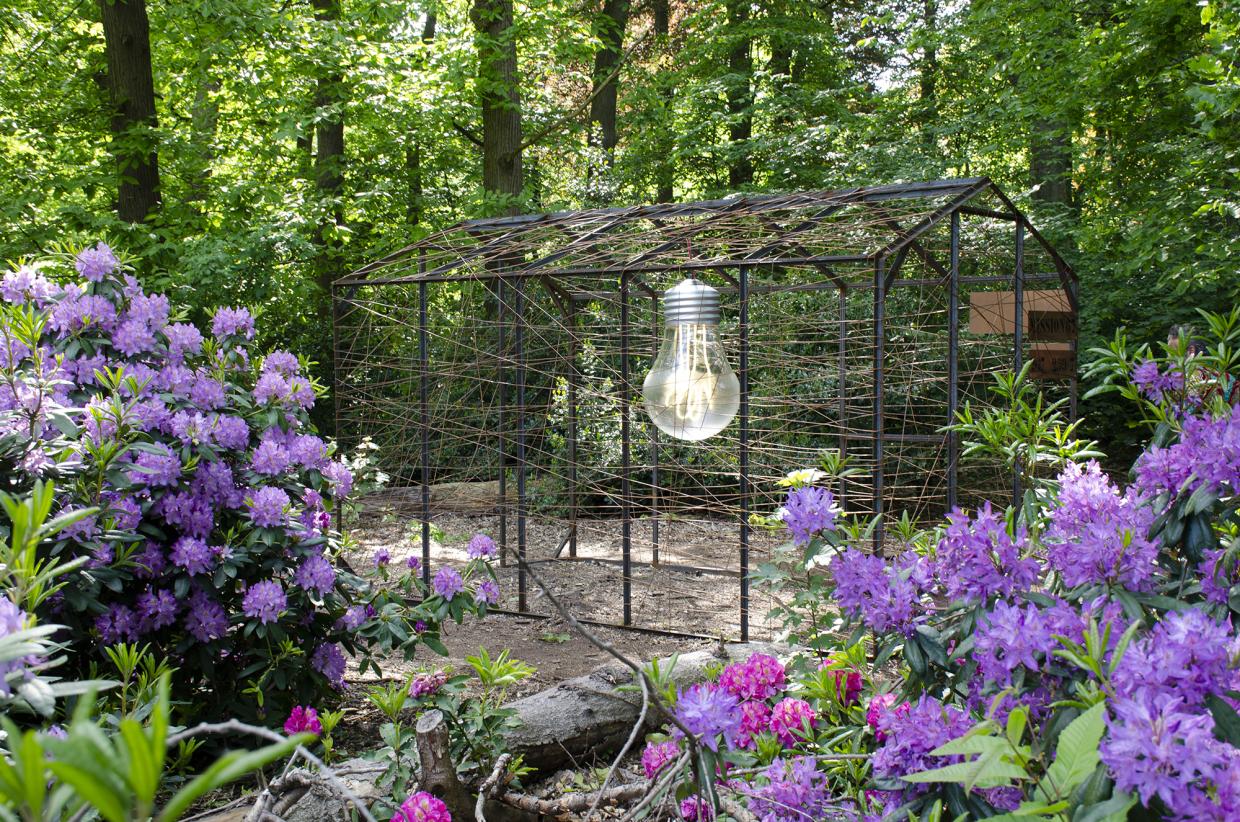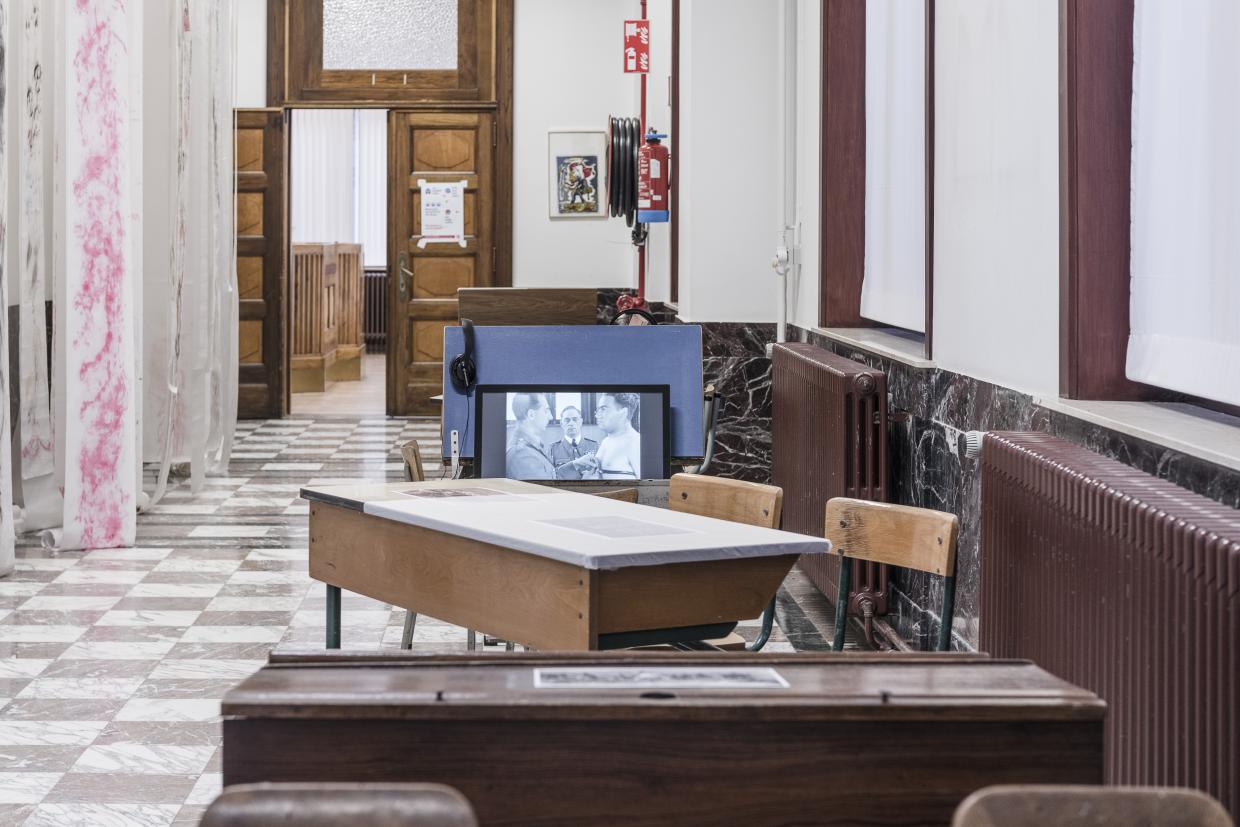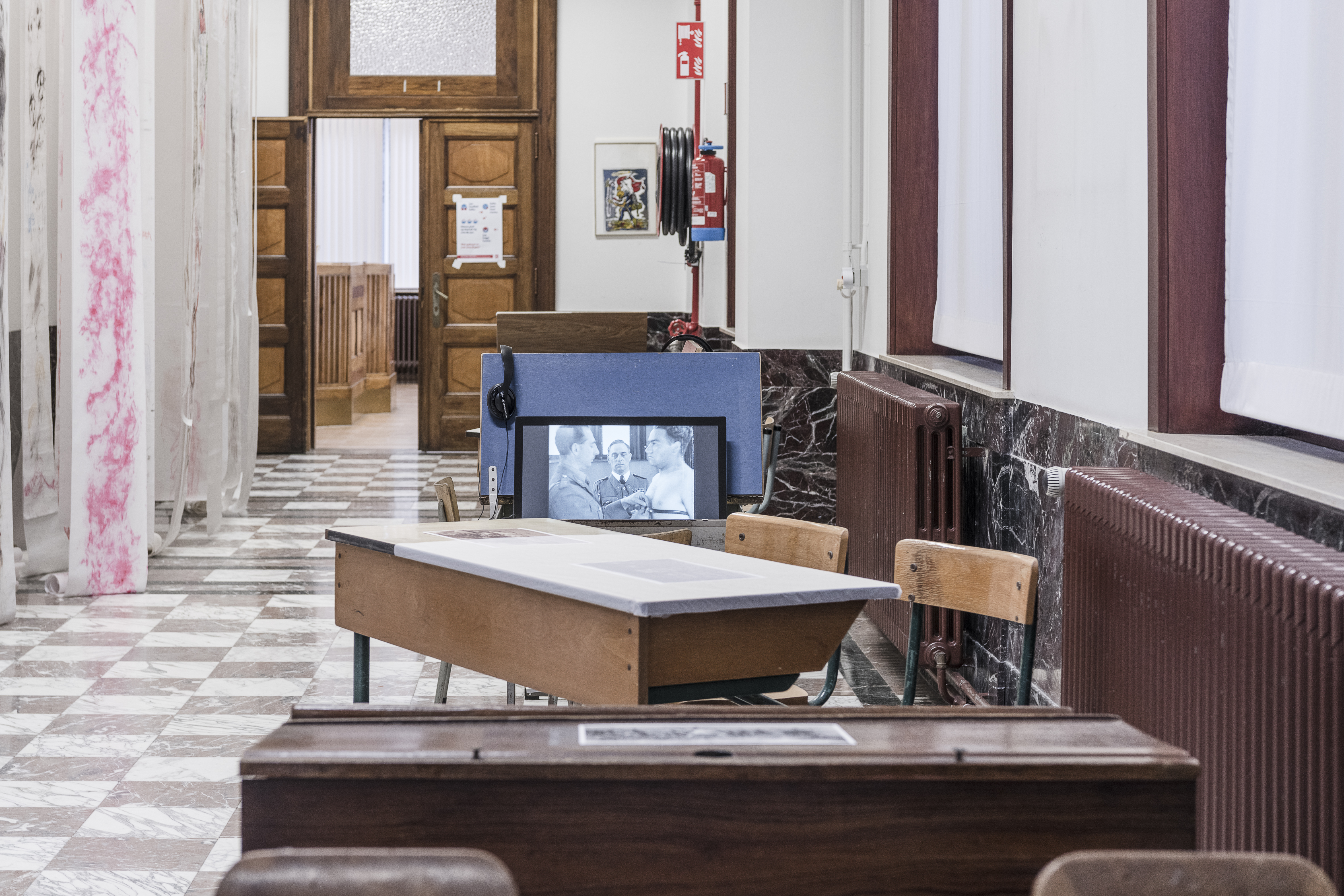
Drawing Lessons from a Collective Trauma
Pélagie Gbaguidi on the Decolonization of Education
Pélagie Gbaguidi's powerful installation The Missing Link: Decolonization Education by Mrs. Smiling Stone in Congoville emphasizes the importance of education in the decolonization process. Curator Pieter Boons and journalist Serine Mekoun engage in a conversation with the artist. 'I attempt to make the collective trauma visible again so that we can learn from our mistakes of the past.'
Large-scale pilot project
Pieter Boons (P.B.): In her essay Sandrine Colard speaks about “unlearning an imperial mindset”. What can this mean to you?
Pélagie Gbaguidi: To ‘unlearn’ an imperial mentality would be an invitation to look at our society with a brave and responsible filter. This challenges us to consider that everything revolving around colonialism, even in the collective memory, is always present and in motion. It’s producing a repetitive story about people and economic expansion, but framed in different words and expressions. Imperialism is not over. The colonial imagination is always present, manifest in a kind of grotesque anachronism.
It’s time for Action, Responsibility, and Courage. It seems to me that Congoville is a pilot project from which a large-scale task of self-examination and self-criticism can be initiated on colonialism and on the transmission of history.
A new collective narrative
P.B.: Action, Responsibility, and Courage. How do we start it?
It’s very clear to me we’ll have to work on the causes that generated the colonial and racial issues. From an educational perspective, it’s necessary to develop a plan that would help to learn reflecting on the impact of those tragedies in today’s world, through new teaching formats.
The key lies in the transmission of history through the creation of research departments on the systems of dominant powers, on the psychological consequences of wars, on systematic tragedies, and on social devastation.
We urgently need to encourage the deconstruction of prejudices by means of analysis, the critical approach to colonial archives, the circulation of knowledge, and the development of work on representation. This can enable the cultural and creative sector to develop the deployment of new collective narratives in progress. The arduous task involving working on memory and conscience is essential, as a process of ecology of thought for our future generations in the light of this new decade.
Serine Mekoun (S.M.): Who can take on this enormous task?
I believe that art and the power of imagination can already contribute in a symbolic way. This helps to broaden shared responsibilities, considerations about the restitution and recovery of African art objects by seeking creative possibilities for dialogue.
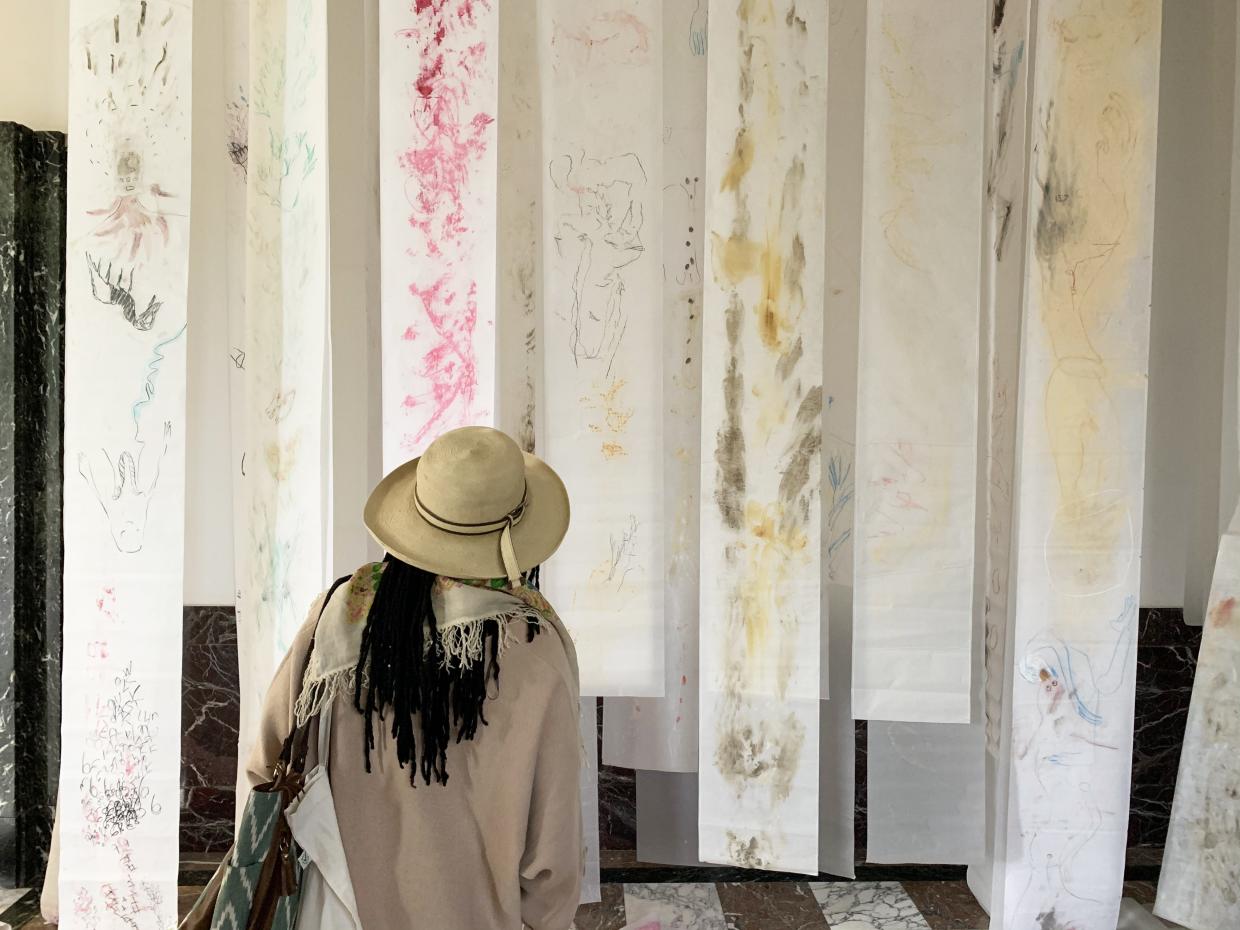
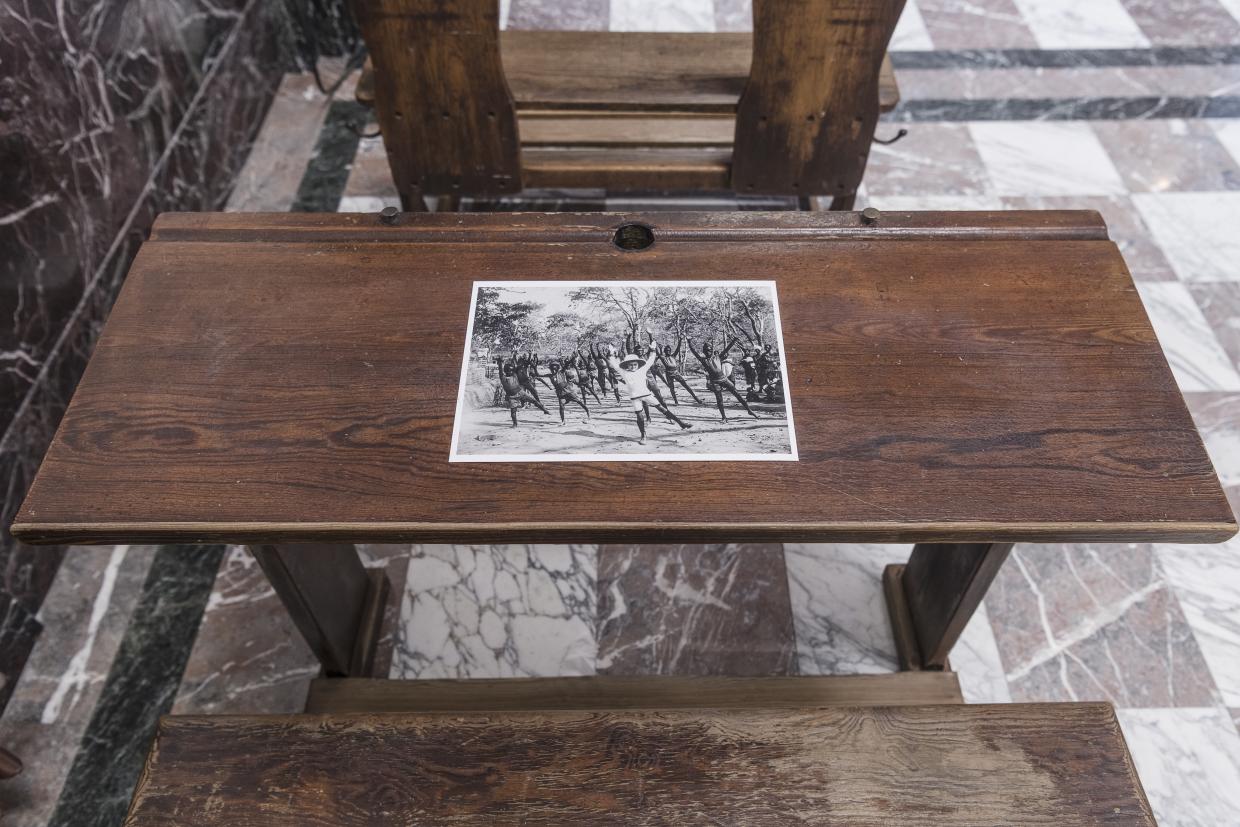
Next version
S.M. Let’s talk about your work in the Congoville exhibition. What are the ideas behind the works you show here?
The work I present in this exhibition is the next version of an installation that I’ve shown in 2017 at the documenta 14 in Kassel and Athens. The Missing Link: Dicolonization of Education by Mrs Smiling Stone was initially inspired on a visit to the heritage site the Cradle of Humankind near Johannesburg, different sources of documentation on apartheid, and my visits to other memorial sites. After a long time of reflection, I developed my statement for this project: How might education contribute to purge concepts like ‘under-beings’ from our consciousness? The birth of a life is a value in itself, and every human has a right to a cradle.
A specific historic event caught my attention: on June 16, 1976, black school children started a series of protests and demonstrations against apartheid in Johannesburg. How to recollect the tragedy of this Soweto uprising? Or the sacrifice of these children, who carried an ideal for all?
I connected the student uprising in Soweto with other historical realities: slavery in ancient Greece, the history of Nazi Germany, the recontextualization of the archive of the Code Noir on black slavery. From all these elements emerged a kind of global colonial consciousness. There was a 'missing link.'
P.B.: How does the context of this exhibition open up the work or influence its meaning?
Recontextualizing The Missing Link lent itself to the concept of Congoville. Here, the close collaboration with Sandrine Colard and the curatorial team of the Middelheim Museum allowed me to approach an in-depth research on Belgian colonial archives.
For me it feels that, when making a next version of this work, another important chapter is opening up. In the final installation you’ll see photographs from the archives of the Tervuren Museum and of the Colonial College, together with drawings made by Antwerp adolescents in a participative workshop we did.
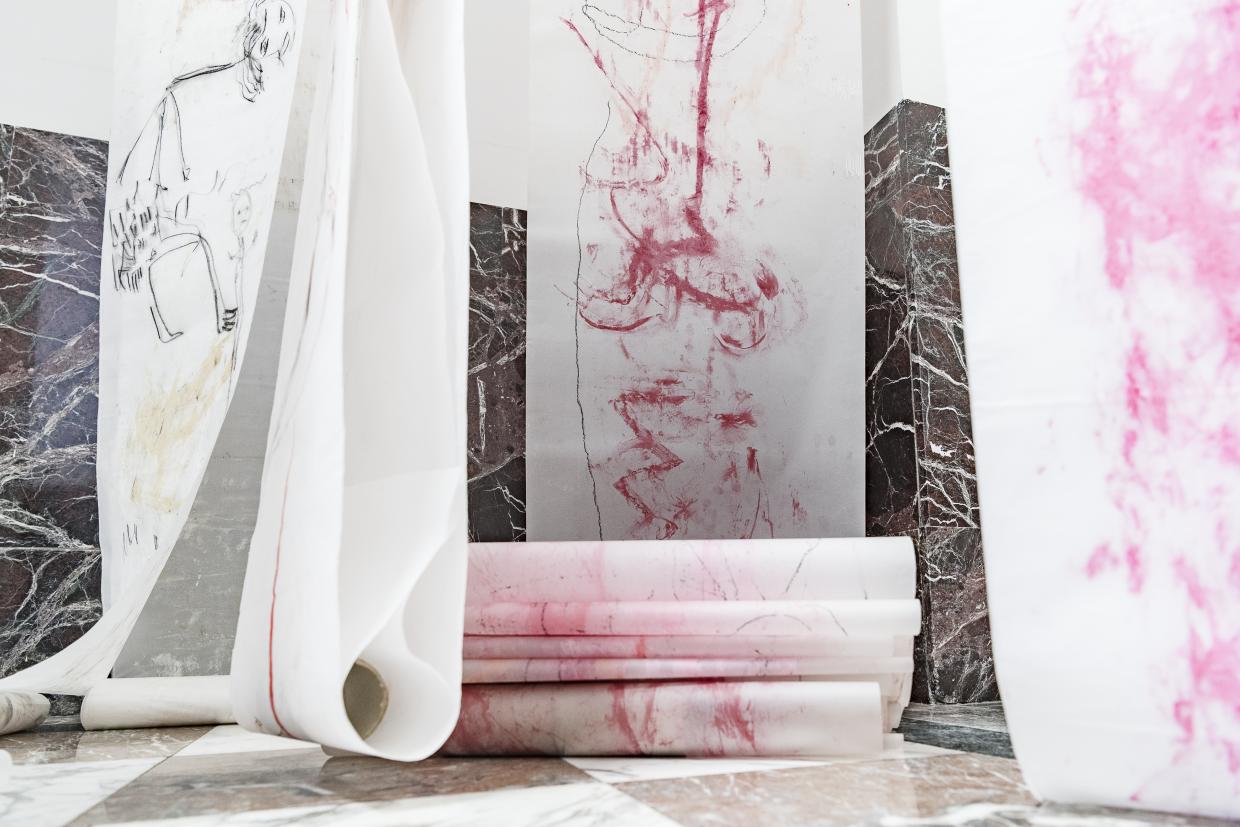
Le Code Noir
S.M.: Your installation is the result of a series of workshops. How do you establish all those connections with the students, each coming from very different backgrounds?
When I propose the workshops, I suggest a confrontation with the Code Noir. From there, we select several articles. This research immerses us in a space where our sensibilities are put to the test: we are tossed back and forth by explicit references to violence and practices related to colonial oppression. Everyone reacts differently, depending on where they come from.
It is precisely in this friction that we recognize ourselves and are reborn as human beings. It provides students with a unique experience. The result of this trial is reflected in the notebooks, which do not force the gaze but invite closeness and empathy.
S.M.: You present a new version of the installation in the former colonial school. Do the workshop participants draw the same connection between slavery, colonization, and the consequences for the Belgian society they live in?
Slavery is very abstract for them, and colonization is only visible in scattered remnants. Often there is either an over-interpretation of the facts or a vacuum. It's crucial to make it understandable for them, to connect the events with each other.
During a workshop, a student asked me: "What do we decolonize?" She was referring to an educational gap in teaching about the colonial period in Belgium and elsewhere. When I talk about connecting, it's a process that unfolds over a long period.
S.M.: Why are the younger generations crucial in this process?
I see a part of ourselves in the younger generations. They are growing up with a part of world history that has not been passed down to them. Due to neglect? Due to a lack of courage? What do we retain from past mistakes so as not to repeat them? Schools should educate children: teach them values, also regarding Belgian and global colonial history. Young people hold the promise of renewed beauty within them, that's why we must take care of them.
Contemporary Griot
P.B.: To what thinking or writing your work is related, and why?
I am interested in the oral tradition of storytelling. In West-Africa, the Griot is an important figure performing as a historian-troubadour. Using his voice to speak, sing, shout, or rhyme, he is a primary storyteller that can share and reflect upon history. In relation to my work, I identify myself with the role of the griot as a means to transcend the burdens of our past.
I often started from an almost symbolic deconstruction of the archival photographs that I found in museums like Tervuren or the Mandela Museum. I am researching to create a visual database of contemporary traumas and its consequences. But separate from these historical ‘icons’, I understood that I had to talk about my own visions, experiences, and pain, as well to make trauma visible and to accept it.
My work is made in a process of transformation: the toxic material is being treated through rhymes that are sung, painted, drawn, and ritualized. Every drawing is a celebration that escapes the trauma, a small victory over the psychological horror of our times.
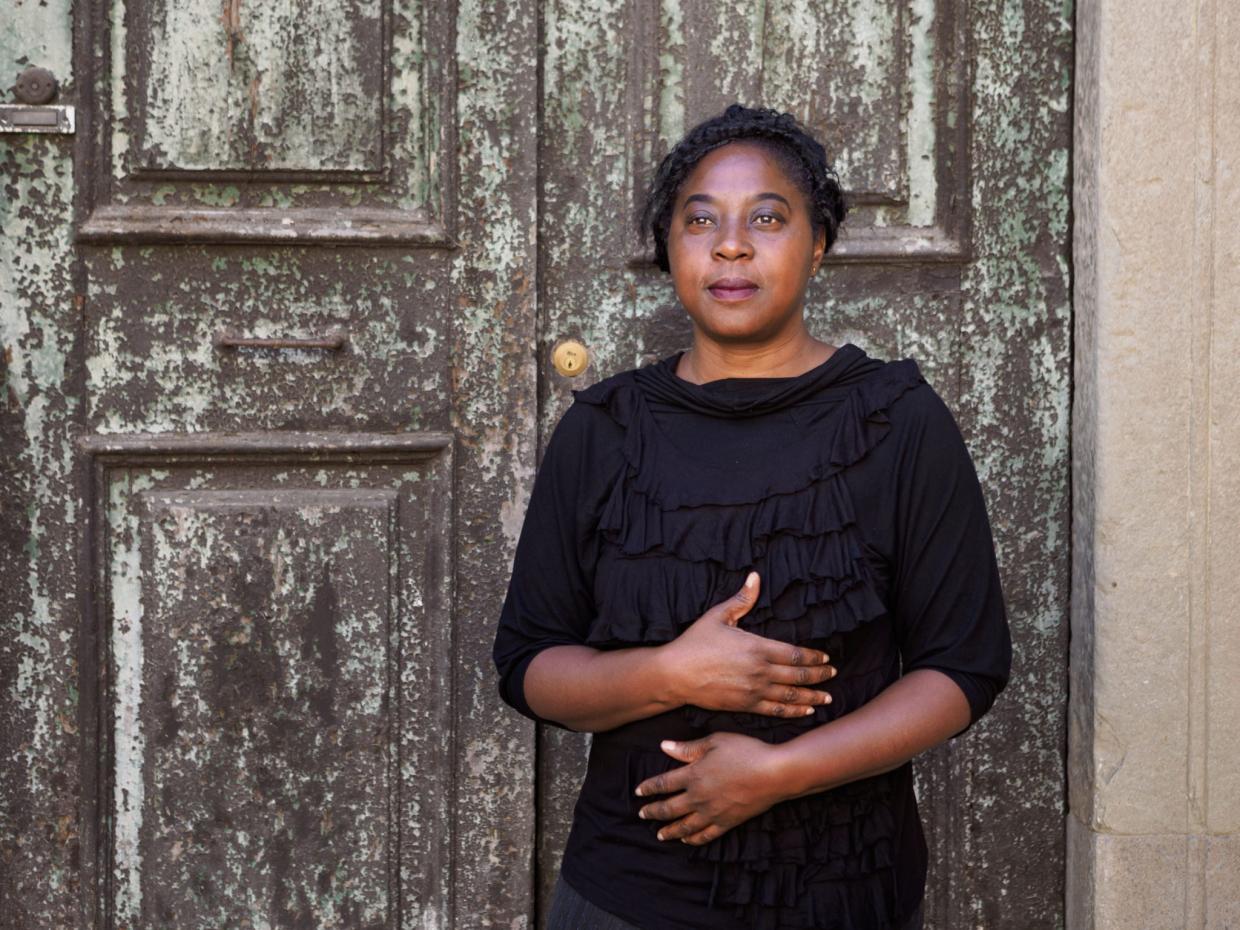
About Pélagie Gbaguidi
Pélagie Gbaguidi was born in 1965 in Dakar, Senegal, and is of Benin origin. Since graduating from the School of Fine Arts of Liège (Belgium), she has worked and lived in Brussels.
Defining herself as a contemporary griot, Gbaguidi’s paintings, writings, drawings, and installations are musings of individual and collective memory. She critically engages with the misuse of history; deconstructing stereotypes, rewriting meta-narratives, and using myth as an open space to create a simulacrum of the present in flux.
Exhibitions
Among other venues, Gbaguidi has participated in numerous international exhibitions such as:
- the Biennale of Dakar (2004, 2006, 2008, 2014, 2018)
- Divine Comedy: Heaven, Hell, Purgatory Revisited by Contemporary African Artists, MMK Museum für Moderne Kunst, Frankfurt in 2014 & the National Museum of African Art Smithsonian Institution, Washington, DC, in 2015
- Afriques Capitales, Gare de Saint Sauveur, Lille in 2017
- the documenta 14 in Athens and Kassel in 2017
- Decolonizing the Body at the Eternal Network Gallery in Tours in 2019
- Multiple Transmissions: Art in the Afropolitan Age at WIELS in Brussels in 2019
In 2018, she was a fellow at Civitella Ranieri Foundation in Italy.
About Serine Mekoun
Serine Mekoun is a Belgian-Togolese French-speaking freelance multimedia journalist (Ahefa Productions) working between Brussels and the African continent. She writes about artists, creative communities, and how they bring about social change in postcolonial contexts.
